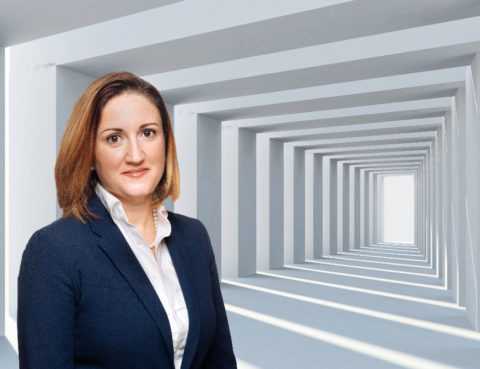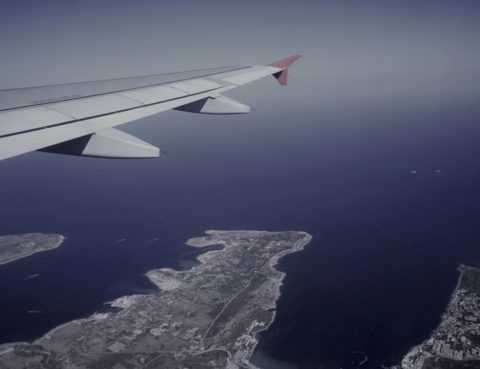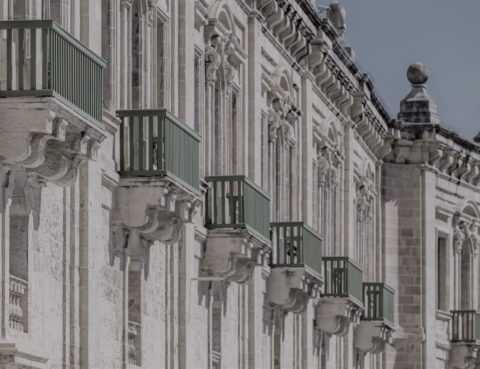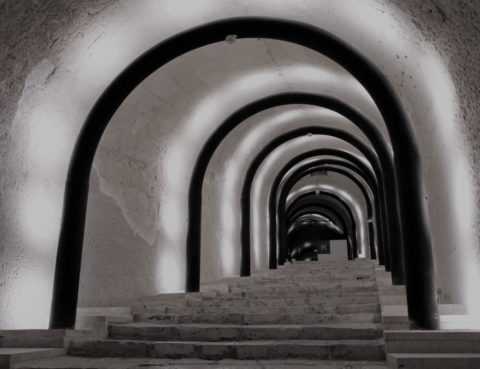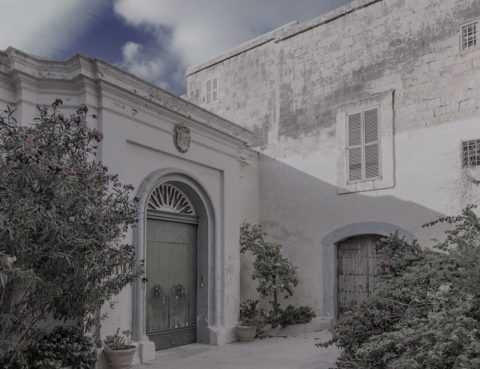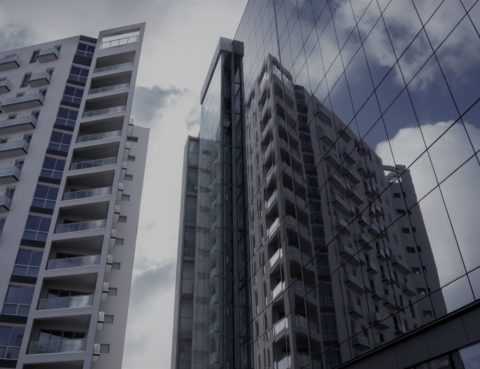Dr Priscilla Mifsud-Parker has been re-elected for another year as the Chair of the Malta branch of STEP (Society of Trust & Estate Practitioners), a private client professional organisation. Prior to this role, Dr Priscilla served as a Secretary in the STEP Malta Branch Committee.
At ACC Advisors, Dr Mifsud Parker heads up the Corporate, Trusts & Fintech as well as the Families & Wealth practice within the firm. In this capacity, she specialises in trusts and estate planning, wealth and business structuring for high net-worth individuals, families, financial institutions as well as multinationals.
About STEP Worldwide
STEP members worldwide help families plan for their futures, from drafting wills to issues surrounding international families, protection of the vulnerable, family businesses and philanthropic giving. Full STEP members, known as TEPs, are internationally recognised as experts in their field, with proven qualifications and experience.
The 2021 Citizenship by Investment (CBI) Index published by the Financial Times provides a comprehensive analysis of various citizenship programmes worldwide. The fifth edition of the CBI Index issued in 2021 ranks Malta first under the ‘Freedom of Movement’ pillar. Malta scored 10 out of a maximum of 10 points under this pillar confirming Malta’s passport as one of the best travel documents to hold. When obtaining Maltese citizenship through naturalisation, descent or through investment one gets to travel to 186 countries without a visa or visa on arrival, thus avoiding lengthy and bureaucratic visa procedures.
Freedom of Movement Index
Freedom of movement between countries is of utmost importance to any individual or family seeking a second or alternative citizenship. This applies irrespective of whether the individual wishes to travel for business purposes, to visit family or for leisure. In the CBI index of 2021, the Freedom of
Movement Pillar measures the country’s citizenship on the basis of three factors:
- The number of countries which a passport allows travel to without restrictions
- The number of prime business hubs to which it provides access and
- The degree to which a given citizenship provides settlement rights in other nations.
When conducting this research, emphasis was placed on the total number of countries that may be visited without a visa or a country which gives a visa on arrival since neither requires the receipt of a visa in advance of travel. As business travel is of paramount importance for prospective global citizens, a passport’s ability to provide access to the world’s leading economic and financial centres was also evaluated.
Right to Settle & Travel
Malta is a member of the European Union and the Schengen Area. Therefore, any Maltese citizen can travel, work and reside freely in any European Union member state. Being a European Union country, Malta offers its citizens extensive settlement rights and travel opportunities. The EU Freedom of movement is very vast in scope and includes the free movement of persons, goods, capital and services.
Malta Visa-Free Countries
The below is a comprehensive list of visa-free or visa on arrival countries for Maltese passport holders:
1. Albania
2. American Samoa
3. Andorra
4. Anguilla
5. Antigua and Barbuda
6. Argentina
7. Armenia
8. Aruba
9. Australia
10. Austria
11. Azerbaijan (e-visa)
12. Bahamas
13. Bahrain (e-visa)
14. Bangladesh (visa on arrival)
15. Barbados
16. Belarus
17. Belgium
18. Belize
19. Benin (e-visa)
20. Bolivia (visa on arrival)
21. Bosnia and Herzegovina
22. Botswana
23. Brazil
24. Brunei
25. Bulgaria
26. Burkina Faso (visa on arrival)
27. Cambodia (e-visa)
28. Canada
29. Cape Verde
30. Chile
31. Colombia
32. Comoros (visa on arrival)
33. Costa Rica
34. Cote D’ Ivoire (e-visa)
35. Croatia
36. Cyprus
37. Czech Republic
38. Denmark
39. Djibouti (e-visa)
40. Dominica
41. Dominican Republic
42. Ecuador
43. Egypt (visa on arrival)
44. El Salvador
45. Estonia
46. Eswatini
47. Ethiopia (e-visa)
48. Fiji
49. Finland
50. France
51. Gabon (e-visa)
52. Gambia
53. Georgia
54. Germany
55. Greece
56. Grenada
57. Guatemala
58. Guinea (e-visa)
59. Guinea-Bissau (visa on arrival)
60. Haiti
61. Honduras
62. Hungary
63. Iceland
64. India (e-visa)
65. Indonesia
66. Iran (visa on arrival)
67. Ireland
68. Israel
69. Italy
70. Jamaica
71. Japan
72. Jordan
73. Kazakhstan
74. Kenya
75. Kiribati
76. South Korea
77. Kuwait (visa on arrival)
78. Kyrgyzstan
79. Laos (visa on arrival)
80. Latvia
81. Lebanon (visa on arrival)
82. Lesotho
83. Liechtenstein
84. Lithuania
85. Luxembourg
86. Madagascar (visa on arrival)
87. Malawi (visa on arrival)
88. Malaysia
89. Maldives (visa on arrival)
90. Marshall Islands
91. Mauritania (visa on arrival)
92. Mauritius
93. Mexico
94. Micronesia
95. Moldova
96. Monaco
97. Mongolia (visa on arrival)
98. Montenegro
99. Morocco
100. Mozambique (visa on arrival)
101. Myanmar (e-visa)
102. Nepal (visa on arrival)
103. Netherlands
104. New Zealand
105. Nicaragua
106. North Macedonia
107. Norway
108. Oman (e-visa)
109. Pakistan
110. Palau
111. Panama
112. Papua New Guinea (e-visa)
113. Paraguay
114. Peru
115. Philippines
116. Poland
117. Portugal
118. Qatar
119. Romania
120. Russia (e-visa)
121. Rwanda (visa on arrival)
122. Saint Kitts & Nevis
123. Saint Lucia
124. Saint Vincent and the Grenadines
125. Samoa
126. San Marino
127. San Tome and Principe
128. Saudi Arabia (visa on arrival)
129. Senegal
130. Serbia
131. Seychelles
132. Sierra Leone (visa on arrival)
133. Singapore
134. Slovakia
135. Slovenia
136. Solomon Islands
137. Somalia (visa on arrival)
138. South Africa
139. South Sudan (e-visa)
140. Spain
141. Sri Lanka (e-visa)
142. Suriname
143. Sweden
144. Switzerland
145. Tajikistan
146. Tanzania
147. Thailand (visa on arrival)
148. Timor-Leste
149. Togo (visa on arrival)
150. Tonga
151. Trinidad and Tobago
152. Tunisia
153. Turkey
154. Tuvalu
155. Uganda
156. Ukraine
157. United Arab Emirates
158. United Kingdom
159. United Stated of America
160. Uruguay
161. Uzbekistan
162. Vanuatu
163. Vatican City
164. Venezuela
165. Vietnam (e-visa)
166. Yemen
167. Zambia
168. Zimbabwe
How to Obtain Maltese Citizenship through Investment?
The granting of Maltese citizenship by investment is regulated by Legal Notice 437 of 2020 which lays down the eligibility criteria and requirements of these regulations. Under these regulations an applicant may apply for citizenship for himself, the spouse, children up to the age of 28 and financially dependent parents and grandparents of the applicant and the spouse over the age of 55 years.
Under these regulations, an applicant can apply for Maltese citizenship after three years or by an exceptional investment after 1 year of residency when satisfying the following requirements:
- Making an exceptional contribution of €600,000 when the application is submitted after 36 months of residence or €750,000 when the application is submitted after 12 months of residence, and
- Making an investment in property (rental or purchase), and
- Donating €10,000 to a Maltese charity organisation or NGO.
How Can We Assist?
As a Maltese immigration firm, we are accredited and hold licence number AKM-ACCA-22. We guide applicants interested in obtaining Maltese citizenship through the various routes. Over the last 20 years our immigration team has successfully assisted a number of individuals and families to acquire citizenship in Malta and benefit from the numerous advantages it offers.
Malta, one of the safest countries in the world is attracting a number of South African nationals who are relocating due to various reasons. With the rise of Covid cases, the increment of travel restrictions for South African passport holders, and the lack of safety in general, a number of South African nationals are applying for Maltese residency or citizenship as a Plan B to be able to relocate if the situation continues to deteriorate.
In this publication, we explain why Malta is the best option for South Africans wishing to, not only be granted the right to live in Europe, but also access all European financial markets while offering their children a future filled with opportunities and choices.
1. Malta is Safe and Secure
An increase in crime rates is most often directly attributable to lack of employment opportunities in a country. Malta boasts of one of the lowest unemployment rates in Europe, with an unemployment rate of only 3.6% in 2021, and finding employment in Malta is quite relatively easy.
For the fourth consecutive year, in 2021 crime rates in Malta decreased by 16% which shows that Malta is a safe country to relocate to. Malta’s crime rate, at 31 instances of crime per 1,000 inhabitants largely culminates above the EU’s average 59 instances per 1,000 inhabitants. Indeed, crime levels in Malta are exceptionally low in comparison with most EU countries making it the second safest country in the world and first in the EU according to a study carried out by the AfrAsia Bank Global Wealth Migration Review. These indexes and statistics reflect a number of factors such as freedom of the press, equality in terms of gender, multi-culturalism, respect to various cultures and religions and minimal exposure to natural disasters. As a full member of the European Union, Malta is recognized as a safe place where immigrants feel part of a welcoming community.
2. Malta is an English Speaking Country
Malta, being part of the Commonwealth, is the only country in the Schengen area with English as its official language. Being an official language of Malta, English is widely spoken and is considered to be the everyday life language of most Maltese residence, making the shift to Malta, for those wishing to relocate, very smooth and free of language obstacles.
For children and university students particularly, it allows them to continue their education path with no interruption caused by any language barrier. In addition, Malta hosts a number of English schools attracting students from all over the world.
3. Visa Free Travel Destinations for Maltese Citizens
These two reasons, combined with the 186 visa-free destinations you can access as a Maltese passport holder (including the US, Canada and the UK) places Malta as a top-notch choice for South Africans, wishing to offer their families a brighter future filled with opportunities, while protecting their personal and commercial interests.
How can South African Nationals Obtain Maltese Residency or Citizenship?
It doesn’t come as a surprise that the South African community in Malta is growing. We will now explain how a South African national can apply for citizenship or residency in Malta.
Malta Permanent Residence Programme (MPRP)
The Malta Permanent Residence Programme is the most popular residence programmes with South African nationals based on the fact that this gives permanent residence which is valid for life. The MPRP was launched in 2021 and it grants permanent residence if an applicant satisfies the following requirements:
- A contribution of either €68,000 or €98,000 which is to be paid upon approval depending on whether the applicant rents or purchases property in Malta.
- An investment in property (rental or purchase), and
- A donation of €2,000 to a Maltese charity organisation or NGO.
Malta Global Residence Programme (GRP) for South Africans
The Malta Global Residence Programme on the other hand grants a special tax status by virtue of which an applicant can apply for a Maltese residence card. Since 2013, the GRP has been seeking expatriates seeking an alternative tax residence jurisdiction in the European Union.
The applicant must also satisfy 3 requirements including:
- A one-time non-refundable fee of €6,000
- An investment in property (rental or purchase), and
- A minimum annual tax payment of €15,000
Malta Citizenship by Investment for South African Nationals
The Granting of Maltese Citizenship for Exceptional Services by Direct Investment is regulated by Legal Notice 437 of 2020. Under these regulations, investors can apply for Maltese citizenship after three years or by an exceptional investment after 1 year of residency.
Under these regulations, an applicant may apply for Maltese citizenship through investment if he satisfies the following requirements:
- An exceptional contribution of €600,000 when the application is submitted after 36 months of residence or €750,000 when the application is submitted after 12 months of residence, and
- An investment in property (rental or purchase), and
- A donation of €10,000 to a Maltese charity organisation or NGO.
How Can We Assist?
ACC Immigration is licenced by Agenzija Komunita Malta to submit applications on behalf of interested applicants and holds licence number AKM-ACCA-22.
Acquiring Maltese citizenship by investment is possible through amendments done to the Maltese Citizenship Act and Legal Notice 437 of 2020. In this article we’ll answer the most frequently asked questions on the Granting of Maltese Citizenship for Exceptional Services Regulations.
What is the Legal Basis for the Malta Citizenship by Direct Investment Regulations?
The Granting of Citizenship for Exceptional Services Regulations (SL 188.06) lists down the eligibility criteria and requirements to apply for citizenship through investment in Malta.
Is there any maximum number of applicants allowed under these Regulations?
The number of citizenship certificates to be granted under these regulations shall not exceed 400 yearly and a total of 1,500 for the whole duration of the citizenship regulations.
Can the Main applicant add family members in the Malta citizenship by investment application?
The Malta citizenship regulations allow the main applicant to include in an application the spouse, unmarried children of the main applicant and of the spouse who have not yet attained the age of twenty-nine (29) as well as economically dependent parents and grandparents of the applicants over the age of 55.
What are the main requirements needed to apply for Malta citizenship by investment?
- There are three main requirements an applicant must do when he is approved for Maltese citizenship:
- Purchase a residential property worth at least €700,000 or rent a property for a minimum annual rent of €16,000, which shall be kept for a minimum of five (5) years, and
- Donate a minimum of €10,000 to a registered and compliant philanthropic, cultural, sport, scientific, animal welfare or artistic NGO, and
Make a non-refundable direct investment of 600,000 when the application is submitted after 36 months of residence or €750,000 when the application is submitted after 12 months of residence. An additional direct investment of €50,000 is required for each additional dependant.
Is the applicant required to keep the qualifying investment for life?
The applicant is required to keep the qualifying purchased or rented property for at least five years from the date on the certificate of naturalisation.
When is the starting date for the residence period?
The residence period starts on the day when the Malta residence card is issued. All adult dependants who wish to apply for Maltese citizenship under these Regulations must hold a residence permit in Malta.
Are there any nationals of certain countries who are not eligible to apply?
Nationals or individuals with close links to Afghanistan, Congo, Iran, N Korea, Somalia, Sudan, South Sudan, Syria and Venezuela are ineligible to apply for Maltese citizenship under these Regulations.
Are Due Diligence Fees payable for all applicants?
Due diligence fees only apply for individuals over the age of 12. The due diligence fees payable are of €15,000 for the Main Applicant and €10,000 for each dependent included in the application.
Can an applicant add dependants after the submission of the application?
The application is final when the citizenship eligibility is submitted and the fees at that stage are duly paid. The applicant can only apply for Maltese citizenship to any new-born children at that stage.
At what stage must the applicant decide on which route to take?
The applicant should declare his intention whether he will opt for the 1 year or 3 year route when applying for the Malta residence permit.
Is the applicant required to take an Oath of Allegiance?
The applicant and all adult dependants are required to take an Oath of Allegiance to the Republic of Malta.
How can we assist?
ACC Immigration is licenced by Agenzija Komunita Malta to submit citizenship by investment applications on behalf of interested applicants and holds licence number AKM-ACCA-22
The acquisition of Maltese citizenship through the Granting of Citizenship for Exceptional Services regulations grants a number of benefits to highly talented individuals who are willing to invest in Malta.
Malta Citizenship by Direct Investment for the Whole Family
Applicants and their family members are given the opportunity to receive better education, high quality healthcare and standard of living. With the continuously changing geopolitical situation, applicants are securing a second nationality in the European Union which offers more stability, safety and peace of mind. Upon acquisition of a Malta passport, applicants and their family members are able to reside freely in Malta and to travel to over 180 countries without a visa.
Malta, unlike certain regions in the world offers political and economic stability and this appeals to various foreign investors looking for a safe yet highly competitive jurisdiction to do business. Malta also enjoys a highly skilled and English-speaking workforce making it attractive for high-net-worth individuals to open up or relocate their enterprises.
Benefits of Granting Malta Citizenship by Direct Investment
The acquisition of Maltese citizenship by investment grants a number of benefits to foreign applicants such as:
- Maltese Citizenship within 3 years or exceptionally after 1 year of Residence
- Inclusion of Family Members
- English Speaking Country
- Visa Free Travel to over 184 Countries
- Citizenship for life
- Malta allows Dual Nationality
- Free Healthcare & Education
- Citizenship is passed down to Future Generations
Maltese Citizenship within 3 years or exceptionally after 1 year of residence
An applicant must hold a residence status in Malta for at least 36 months or at a higher investment for 12 months before submitting a citizenship application. On applying for residence in Malta, the applicant and his family members are granted a Maltese residence card.
Inclusion of family members
Under the Malta Citizenship by Investment Regulations, the applicant may include in the application, his/her spouse, a child up to the age of 28 who is un-married and economically dependent on the main applicant, and economically dependent parents and grandparents over the age of 55.
English speaking country
The English language is one of Malta’s official languages and the majority of the population speaks English. This makes it ideal for foreign investors and their family members to relocate to Malta. Malta is also a famous hub for students looking to learn English in Malta and there are over 40 English schools on the island.
Visa free travel to over 184 countries
Applicants who are granted Maltese citizenship by direct investment enjoy visa free travel to over 184 countries with a Maltese passport. This ranks the Malta passport in the top 10 of all passports worldwide.
Citizenship for life
Once obtained, the applicant and all family members obtain Maltese citizenship which is valid for life. Applicants get the right to reside, work and stay in Malta without any restrictions.
Malta allows dual nationality
Applicants who obtain Maltese citizenship through investment are not required to renounce their original citizenship by Maltese law. By virtue of the Maltese Citizenship Act, it is lawful for any person to be a citizen of Malta and at the same time a citizen of another country. Malta thus allows not only dual nationality but multiple.
Free healthcare & education
Maltese citizens enjoy free and good quality healthcare in public clinics and hospitals around the island. Education is also free for all Maltese nationals up to the first University degree. In addition, students are also given a stipend for academic related expenses.
Citizenship is passed down to future generations
Maltese citizenship law allows for the acquisition of Maltese citizenship of any new-born children as long as one of their parents is Maltese irrespective of where the child is born. Hence Maltese citizenship is passed down to future generations.
How can we assist?
ACC Immigration is licenced by Agenzija Komunita Malta to submit citizenship applications on behalf of interested applicants and holds licence number AKM-ACCA-22.
The Malta Nomad Residence Permit (NRP) has just been launched by the Residency Malta Agency. As a country, Malta has been attracting digital nomads for years and since then Malta became a cosmopolitan and multi-cultural hub in the heart of Europe. Malta offers all the benefits for individuals seeking to work remotely from Malta including a robust infrastructure, internet connection, airline connectivity and 300 days of sunshine. In addition, English is one of Malta’s official languages and is widely used in Malta. Malta therefore ticks all the boxes for individuals wanting to relocate to Malta whilst retaining their current employment in another country.
The Malta Nomad Residence Permit (NRP) – Requirements
The Nomad Residence Permit is open to Non-European individuals who can work remotely in Malta, independent of where the service is offered. A residence permit issue under the NRP is valid for one year and is renewable as long as all the requirements of the programme are kept. A €300 application fee payable to the Government is applicable.
To qualify for Malta’s Nomad Residence Permit applicants must reach a monthly income of €2,700 (gross of tax).
Applicants must also:
- Hold a valid travel document,
- Have a Health Insurance Policy
- Rent or Buy Property in Malta
- Pass a Background Verification check conducted by Maltese authorities.
There are three categories of Digital Nomads who may be eligible to apply for Malta’s NRP. These include individuals who:
- Work for an employer registered outside of Malta and have a contract of work, or
- Conduct business activities for a company registered outside of Malta and which the applicant is a shareholder or a partner, or
- Offer Freelance or consulting services to clients whose permanent establishments are in a foreign country and with whom the applicant has contracts.
Applicants who intend to spend up to one year residing in Malta will be issued with a Residence Permit whilst those who intent to spend up to 180 days in Malta will be issued with a National Visa.
Digital Nomads under the NRP may also bring their family members to Malta including one’s spouse and minor children. Adult children who are unable to cope independently due to any medical condition, disability or those who are economically dependent on the main applicant may also be considered.
Applications under the NRP are expected to take up to 30 days following submission of the application. ACC Immigration can assist digital nomads apply under the NRP. ACC Immigration is licenced by Residency Malta Agency and holds licence number AKM-ACCA-22.
The Malta Permanent Residence Programme is now accepting applications from prospective applicants seeking permanent residence in Malta. Following the publication of Legal Notice 121 of 2021 the Malta Permanent Residence Agency is now formally accepting applications under the MPRP, after having stopped receiving applications under the previous Malta Residence and Visa Programme on Friday 26th March 2021.
Two Investment Options for Applicants to choose from
The Malta Permanent Residence Programme is now accepting applications from prospective applicants seeking permanent residence in Malta. Following the publication of Legal Notice 121 of 2021 the Malta Permanent Residence Agency is now formally accepting applications under the MPRP, after having stopped receiving applications under the previous Malta Residence and Visa Programme on Friday 26th March 2021.
The new regulations lay down the legislative framework for the acquisition of residency under the MPRP. Residence cards under the MPRP are issued for 5 years and renewable for 5 years indefinitely as long as the applicant maintains a residential property in Malta. Holders of the MPRP enjoy permanent residency status in Malta granting the right to stay indefinitely in Malta subject to fulfilling the requirements set out in the legal notice.
Malta Permanent Residence Programme: Investment Options
Applicants under the MPRP may choose from two investment options:
1.Property Rental Option, or
2.Property Purchase Option
Whichever option is chosen the applicant is also required to make a one-time donation of €2,000 to a Maltese charity institution or non-governmental organisation.
Applicants are also required to make a contribution of €68,000 when buying a qualifying property; or €98,000 when renting a qualifying property.
If the applicant opts for the Property Rental Option, he should rent a property for at least €10,000 annually if the property is located in the South of Malta or Gozo, or €12,000 annually if located in the Central or Northern Part of Malta.
If the applicant opts for the Property Purchase Option, he should buy a property for at least €300,000 if the property is located in the South of Malta or Gozo, or €350,000 if located in the Central or Northern Part of Malta.
Malta Permanent Residence Programme – Eligibility
The MPRP is available only for Non-EU/EEA applicants of good repute. Applicants are required to show evidence of clean source of funds and wealth and a clean police record. In addition, applications under this programme are required to have capital of at least €500,000 out of which €150,000 must take the form of financial assets.
In the same application, the applicant may include the following family members:
•spouses or partners in a stable and durable relationship
•dependent unmarried children with no age limit, as well as
•economically dependent parents and grandparents of both the Main Applicant & the Spouse
Malta Permanent Residence Programme: Benefits
- Permanent Residence is valid for life
- Maltese Residence Cards are valid for 5 years and renewable for subsequent periods of 5 years
- Applicants have the right to live, work and reside in Malta
- Malta is part of the Schengen Area, the Commonwealth and the European Union
- Visa Free Travel within the Schengen Area
- Malta enjoys high quality education and healthcare services
- The MPRP allows a property rental option in lieu of a buying option, making the process both easy and convenient.
Our Malta Permanent Residence Services
ACC Immigration is a Maltese licenced immigration firm guiding high net worth international families on diverse subjects such as residency & citizenship, corporate, tax, financial services, fintech & property acquisition. Over the last 20 years, our Malta Immigration specialists have successfully represented hundreds of individuals and families ranging from expatriate retirees, emigrants seeking employment and high net worth individuals.
We are able to advise you on the tax and legal implications and requirements of the residence application process and indicate expected time frames based on the specific circumstances and nature of your application. Our advice covers the rules applicable to immigrating to Malta under a number of available residence schemes as well as practical relocation assistance ranging from transportation and insurance to schooling and health insurance coverage.
ACC Advisors Limited holds licence number AKM-ACCA
Within the remit of the Maltese Citizenship Act, the Granting of Citizenship for Exceptional Services Regulations, 2020 are published nailing down the much awaited procedural and administrative details of the new Maltese investment migration regulations. By virtue of Legal Notice 437 of 2020 Malta launched the Granting of Citizenship for Exceptional Services Regulations with the scope of laying down the requirements and regulating the granting of citizenship by naturalisation for exceptional services to the Republic of Malta on the basis of exceptional interest.
Maltese Citizenship: Exceptional Services
Article 10(9) of the Maltese Citizenship Act, provides for the acquisition of Maltese Citizenship by individuals who render exceptional services to Malta including scientists, researchers, athletes, sports people, artists, cultural performers, investors and entrepreneurs. Exceptional services are defined as services that are unusually excellent or manifestly superior at a local level, and refers primarily to contributions given by scientists, researchers, athletes, sports people, artists, cultural performers, investors and entrepreneurs.
Maltese Citizenship is granted to the applicant who renders such exceptional services as well as all eligible dependents of such individual.
Exceptional Services through Investment in Malta
The grant of Maltese citizenship for exceptional services through investment in Malta requires an investment of at least €600,000 to be made upon demonstrating three years of presence. This period of three years can be reduced to one year if the contribution is increased to €750,000.
The applicant is also required to submit:
- Proof of residence in Malta for at least thirty-six (36) months or by exception of (12) months against a higher investment, preceding the date of application &
- An undertaking to purchase a residential property worth at least €700,000 or rent a property for a minimum annual rent of €16,000, which shall be kept for a minimum of five (5) years from the oath of allegiance &
- An Undertaking to donate prior to the issue of a certificate of naturalisation, a minimum of €10,000 to a registered and compliant philanthropic, cultural, sport, scientific, animal welfare or artistic NGO or society.
Screening and Due Diligence of Applicants for Maltese Citizenship
After the first level of screening, in the form of an eligibility assessment and a screening against the known grounds for rejection, applicants undergo an enhanced standard of due diligence at various stages in the residence application and subsequent eligibility and citizenship applications.
Connecting factors with Malta a prerequisite for Maltese citizenship
This is in addition to demonstrating connecting factors with Malta through personal, social, commercial, investment and philanthropic engagement with the host country Malta.
Qualifying Dependents
An applicant applying under these regulations can include in a citizenship application the following dependents:
- The spouse in a monogamous marriage or partner having the same or similar status. The term spouse shall be construed as gender neutral
- A child of the Main Applicant or the spouse under the age of eighteen (18)
- An economically dependent and unmarried child of the Main Applicant or the spouse who has not yet attained the age of twenty-nine (29), at the time when the citizenship application is accepted by the Agency
- A child of the Main Applicant or the spouse, including an adopted child who at the time of the application has attained the age of eighteen (18) and is qualified as a person with a disability
- An economically dependent parent or grandparent of the Main Applicant or the spouse above the age of 55
Supervision & Regulation of Applications
Applications shall be submitted to and processed by the new Community Malta Agency that has the responsibility of inhouse and additional outsourced due diligence to ensure only clean and reputable families and investors make it to naturalisation as Maltese citizens.
The number of certificates under the Maltese Citizenship by Naturalisation for Exceptional Services by Direct Investment shall not exceed four hundred (400) per annum, and a total of 1,500 for the duration of the regulations.
We are a team of Maltese immigration and due diligence professionals specializing in providing services pertaining to all aspects of obtaining residency and citizenship in Malta. Our immigration lawyers dedicate personal attention to each client and oversee each case individually. We help our clients assess which immigration programme best suits their objectives and whether they qualify for residency or citizenship under Maltese law. We offer all ancillary tax and legal services for holistic coverage of all immigration and relocation projects.
Malta Residence Agents – B2B Partnership
The firm acts as a Malta immigration agent for international lawyers, immigration firms and professional advisors in all their interests in Malta, providing Malta residence and citizenship due diligence, file-building, immigration submission, reviews and appeals for their clients.
Our lead residence lawyer

Our managing partner Dr Priscilla Mifsud-Parker is a private client lawyer with key expertise in Maltese permanent residence, Maltese citizenship law and tax residency in Malta. Priscilla has several years of experience in immigration law, estate and succession law, trusts and estates and property law. Priscilla has represented numerous entrepreneurs, investors, pensioners and family offices in their relocation, residence and citizenship matters, together with ancillary personal tax advice and estate management services.
As part of our Malta residency services, Priscilla also advises our clients on trusts and estate planning, wealth and business structuring for entrepreneurs, investors, high net-worth individuals and their advisors. In the structuring field her main speciality is tailoring solutions for the optimisation and protection of high value assets and reorganisations of complex structures.
Priscilla’s background and experience has enables her to assist clients in structuring their wealth through well-structured, licensed entities such as investment funds.
Licensed Malta Residence Agents
ACC Advisors Ltd is a company registered in Malta with registration number C-44042. ACC Immigration is duly authorised to act as a licensed Malta residence agent in terms of the Agents (Licences) Regulations, 2020 (L.N. 435 of 2020) and bound by the “Licence Agreement and Code of Conduct and Ethics for Agents” entered into with Community Malta Agency (also for the Residency Malta Agency), under official Malta licence number AKM-ACCA
Languages
English, French, Italian, Arabic, Mandarin, Turkish, Russian & Maltese.
About Malta
The little-known Mediterranean island of Malta and its smaller neighbour Gozo, have much to offer in terms of both entertainment and culture. Having first become part of the EU in 2004, and later in 2008 adopting the Euro, Malta has a rich history dating back to 7000 BC, and this has led a unique mix of architecture and culture. In the last few years the island has become renowned for its cosmopolitan lifestyle and recreational options including clubs, upscale restaurants and outdoor sports.
International Living Magazine’s quality of life index rated Malta as the number one place in the world to live. Its favourable climate, beautiful beaches and low levels of crime, highly skilled work force with English being an official language have contributed to Malta’s reputation being an attractive location to take up residence. Malta positioned in the centre of the Mediterranean is in close proximity to both Europe and North Africa and multiple airlines operate to and from Malta, creating direct links to the rest of the world.
Malta’s real estate market encompasses properties of all types and prices, ranging from economical apartments to luxuriously finished villas. Different parts of the island provide distinct backdrops and one has the option of choosing a country view, sea view and even a cityscape. Gated communities and special designated areas offer exclusive places of residence for individuals from all over the world.
The healthcare system in Malta is one of the best in the world. All Maltese residents and foreign nationals from EU member states holding European Health Insurance Cards (EHIC) are eligible to receive free health care.
Non-EU citizens looking to take advantage of Malta’s attractive residence programme have to be covered by a local all-risk medical insurance policy. Malta is an impressive destination and we encourage you to consider its benefits. There is much more to be discovered about the Maltese archipelago and why it makes for a sensational place of residence.
